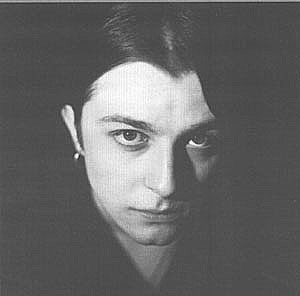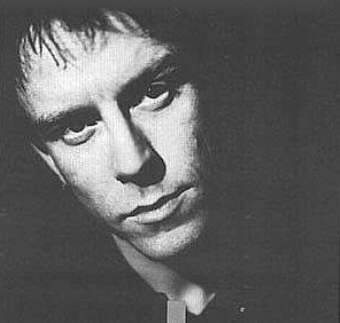#roxi finds this OBJECTIONable
Explore tagged Tumblr posts
Note
From what I remember at the time, there was a chunk of people who generally though he was annoying, for varying reasons going from him not acting like a “real child”, not acting enough like a child, or just disliking his voice. People are absolutely allowed to dislike a character for whatever reason, this isn’t me saying it’s terrible to not like those aspects of Gregory.
Anon is also right in that many seemed against him destroying the animatronics, mostly because Freddy said he did not want him to, and because Gregory does so anyways and lies about it. Which is fair to feel awful about. We the player would rather not hurt Freddy, he’s our friend! And we would more easily think “we could probably avoid doing this.” Because the game doesn’t really explain well *why* we want those upgrades.
But my objection to that is - yeah, it’s awful, but personal objection does not equate to morality of another. Gregory doesn’t want to hurt Freddy - he loves Freddy! It’s why he lies, as objectionable as that is. It’s not okay, but he’s not doing it to be cruel. Gregory clearly thinks in survivalist terms. The animatronics want him dead. Getting rid of them is optimal, and getting rid of them means getting Freddy, who is helping him, to be stronger. It’s a win win.
He doesn’t do it because he equates it to murder. He has no reason to suspect the Pizzaplex wouldn’t just fix them the next day. No reason to leave them alive because they’ll just keep hunting him.
Note how he doesn’t go after Sun, or Moon by extension. Sun isn’t harming him or helping him, but Gregory still doesn’t go after Sun even though it’d get rid of Moon. Why? My thought is because Gregory figures it won’t be worth it. (And moon beating up Freddy isn’t a deterrent, he could try and get Sun if he was truly hellbent on killing off threats). Moon is a minimal threat. Moon won’t upgrade Freddy if he dies.
Gregory isn’t just… trying to kill animatronics because he’s feral or evil or cruel. He takes out what he thinks he has to and what seems like a worthwhile endeavor to survive while he does what he sets out to do.
But people can easily look past that when they themselves feel guilt. It’s easy to go “well I don’t see why we did that” or “I didn’t like that” and then go “I hate Gregory for making me do this”.
It’s partially the games fault for not having Gregory explain himself more (but honestly i don’t think it has to), making people confused and when people are confused they come up with the simplest answer, which generally seemed to be “so he just. Did that to be mean”.
And now that ruin is out, it’s provided those who didn’t like Gregory, or thought he was awful, extra ammunition.
People who disliked Gregory seem to see Cassie as a better Gregory. She’s nice, palatable. A sympathetic victim in her tragedy. And she is nice, and friendly, and very easy to enjoy playing as. She’s easy to understand, and the worst thing she does (deactivating Roxy) isn’t held against her - she’s doing it because she wants to save her friend.
And then, of course. The ending.
If you didn’t like Gregory, you don’t want to think about it too much, because you’re more upset Cassie’s gone.
Easier to look past how much we don’t know, and simply once again go “he just did it because he’s mean”, ignoring that perhaps the illogical aspects of that scene are a hint to something being amiss, rather than cruelty for the sake of cruelty.
It’s understandable that those who didn’t like Gregory are more vocal once more, old feelings dug ip and spat upon.
But very much so, it is… not fun, seeing it when it pops up. Some are just expressing their feelings, which is completely fine (and well. All of this is fine. It’s a game and the internet and there will always be disagreements and annoyances at finding them), but it can be especially irritating when personal feelings come into an analysis of a character, whether by intention or not. Unavoidable, as human nature is, but not fun regardless.
I agree entirely with your post about the death threats and gregory but I want to point out that it is not "sudden". I saw SO much hate for this kid when the game first came out. An irrational amount. And they don't just dislike him, they actually see him as like the "true villain" of the game. I know that like at least half the people that hated him did so because he destroyed the animatronics.... which like, bro.... they were literally trying to kill him
yea some people didn't like him in the beginning but over time it started to die down to the point that those people got drowned out by all the people who love him
but with ruin releasing and the main ending you can get, SO MUCH HATE for him suddenly popping up that it's getting ridiculous
#fnaf#fnaf ruin#fnaf security breach#fnaf sb ruin#fnaf gregory#fnaf spoilers#fnaf ruin spoilers#I’m rambling on a lot of peoples posts#I’m very sorry if this is annoying
36 notes
·
View notes
Photo


@clone-number-407
@ask-melissa-and-the-band Someone is crabby.
#Roxi#mia#roxi finds this OBJECTIONable#ask-melissa-and-the-band#clone-number-407#oc#pony#ask#ask blog#sonia#mlp#My Little Pony
30 notes
·
View notes
Photo





SUEDE: Style & Substances
Alternative Press, May 1997 (no. 106). Mag cover. Written by Dave Thompson. Archived here.
Suede Give Us A Glimmer...
Bleeding through the debate about vocalist Brett Anderson's sexuality and rumored drug intake, the overall glamour with which society equates a fucked-up lifestyle drapes Suede like a second skin. Dave Thompson travels to London to discover why Suede are one of the few bands that matter in an age of stars who are "just like you."
Brett Anderson leans against an amplifier, hands in pocket, shoulders hunched. To his left, the rest of Suede are playing Fleetwood Mac's "Albatross"; to his right, a television crew is fiddling with camera angles. He wants a cigarette, but he never smokes this close to showtime. Instead, he swings a keychain and glowers into the monitors. It's rehearsal time in Studio Four, a theater-sized room as the BBC, and the only person who's enjoying himself is an increasingly rotund-looking Jools Holland. He's the host of this evening's show, and he's away in another room entirely.
Later...With Jools Holland is a British TV institution. Less than three years old, it has nevertheless sewn up a comfortable niche somewhere between the chart-conscious grooviness of Top of the Pops and the more indulgent pastures of MTV Unplugged. It's a showcase for bands to run through a handful of new songs, play a favorite or two and give a taste of their live prowess without boring the unconverted senseless. Boring themselves senseless, of course, is another matter entirely, and as Suede are counted into the third rehearsal of their opening song "Trash," you can almost sense the desperation in Anderson's face. Then the action starts, and he's utterly transformed. Though he's barely moving and scarcely singing, he's conveying an intensity that explodes from his very presence, drawing the most disinterested eyes in his direction. Even the soundmen look up from their meters, and the camera crew compete for his undying attention. If Anderson weren't a rock star, he'd make a great lunatic. But because he is a rock star...well, he's probably a lunatic anyway. You would be, too, in his shoes. If the 1990s have given us anything, it's the demystification of the rock star. From the boy-next-door Weezers to the angst-ridden whiners, the message is the same: I'm no different from you; I'm no better than you; and, of course, I'm just as screwed up as you. Enter, or more properly, re-enter Suede, with their third album, Coming Up (Columbia). And all that hard work reducing idols to idiots counts for nothing. Because Suede couldn't be "just like you" even if they wanted to. Bleeding through the "is he?/isn't he?" debate about vocalist Brett Anderson's sexuality and the "does he?/doesn't he?" of his rumored drug intake, the overall glamour with which society equates a fucked-up lifestyle drapes Suede like a second skin. The scent of teen spirit clings to them, the doomed romanticism of consumptive youth which peaked on their last album, 1994's Dog Man Star, and peeks through the stunning Coming Up. Suede deal in emotional extremes, from the A Clockwork Orange apocalypse of their "We Are The Pigs" video in which armed hooligans howl through a burning industrial landscape while Suede gaze down from giant video screens, to the incandescent loneliness of the current "Saturday Night" video, in which a London subway station is transformed into a rave to which the band have not been invited. The band's junkie chic is as apparent in the stoned immaculate presentation of their latest wasted-youth album-cover artwork, as it is in the gorgeously gaunt frame which Anderson angles for the television cameras. Add a live show that oozes subversive glamour; couple that with the fearless decadence of Anderson's greatest lyrics, and whether it's all an act or not, Suede are a walking advertisement for the joyful sins of sleaze. Backstage in the bowels of the BBC, Anderson sighs. He's heard all this before. "Yeah, you can look at it like that, but that's other people's interpretation of it, and that's their problem. You can't look at yourself through other people's eyes, then worry about what you say through their ears; you've got to have some self-belief in what you are." Which is, right now, the biggest thing on 10 legs. Across Europe and the Far East, Coming Up charted at No.1 and has already outsold both its predecessors. Three singles have kept the pot boiling ever since, and the current Suede line-up (their fifth on record since their 1990 "Be My God" 7-inch single debut) is their strongest yet. Like Brian Eno's departure from Roxy Music, founding guitarist Bernard Butler's exit did not so much rid the band of one creative spark, as open the door for the flowering of another. Anderson's unequivocal grasping of the reins, only partly aided by the recruitment of guitarist Richard Oakes, may have diluted Suede's overall sound, but it has sharpened their vision to a razor's edge. The further addition of keyboardist Neil Codling fills the gaps that teen maestro Oakes couldn't plug; the Simon Gilbert/Mat Osman rhythm section is a thunderous roar that never lets up; and Coming Up is unmistakably the sound of the same great band that recorded Dog Man Star. The difference is, Anderson affirms, they've stopped pissing around. "After Dog Man Star, everyone thought we were going to do an operetta or something like that. But you get things out of your system. We wanted to refocus the band, the fact that we were virtually starting again; we wanted to readjust the basics." And did it work? "You can't completely divorce yourself from your past. I haven't got the memory of a goldfish; I was aware that I'd made two albums before it. But it felt fresh, and it felt as though we were making the record away from a lot of the crap you have to deal with, away from the spotlight, which was great. Plus...", and here he gestures to new arrivals Codling and Oakes, "... there's less of an obsession with self-importance, which was definitely a change in the band. The last two albums were quite precious and self-important, and that can be good and that can be bad." Ah, preciousness. Plough through five years of Suede press and the buzzwords leap out: "superficial", "fake", "David Bowie" - three hollow sides to the same soulless coin. But most of the people who call Suede "pretentious" are the same ones who fancy the Spice Girls. And the closest those cynics get to class is the corridor outside the school room. "It does bother us a bit," says Anderson. "People always want to polarize bands into camps, and what I always find objectionable, even with journalists who are pro-Suede, is, they always want to write about us as an alternative to this good, honest musicianship going on elsewhere, which kind of implies that there isn't any good, honest musicianship going on within Suede." Anderson resents that implication, just as he resents the accusations of vanity that are flung at him with equal frequency - the two go hand in hand, after all. "People ask, 'Are you vain?' Hang on, let me turn the question around. If you were going to appear on television in front of five million people, you'd probably look in a mirror to see what you look like. You'll brush your hair and put a bit of make-up on because you don't want to look like a pig. Does that mean you're vain? I don't think it does. "Ninety-nine percent of my career thought is dedicated to thinking about music; a very tiny percentage is spent on image. I may go shopping once a month; but while I don't think we're the honest blokes down the pub, we're not kooky weirdos either. We're just what we are." A decent image, though, is still worth a thousand songs (ask Marilyn Manson), and if it's not their Englishness that holds Suede back in the U.S., then it has to be their appearance. They look weird. Catch the "Beautiful Ones" video: Codling apes the same abstracted pose of diffidence and boredom that once made a star of Sparks' Ron Mael; and Osman and Oakes look like they're trying to extinguish a particularly persistent cigarette end. Their singer is fey. Imagine Bryan Ferry if a stick insect stole his trousers. Their music is arty. And they come on like they're somehow special, so special that America poses little interest or challenge to Suede. Other bands make no secret of their desire to crack the country, nor do they hide their disgust when they fail. Suede, though, never seemed bothered. Past U.S. tours (three so far) have been languid affairs, barely publicized flirtations which almost gratefully acknowledge that as far as most people are concerned, Suede might as well be a lesbian performing artist. Anderson dictates the band's Stateside manifesto: "I don't give a shit." "Don't get me wrong: please don't portray us as some sort of anti-American thing, because we're not. But as far as America is concerned, you can talk about airplay and videos, but all it really boils down to is the fact that America doesn't like Suede. And I'm not going to knock it, if they don't like it, they don't like it." And what don't they like? Kurt Cobain had a tummy ache, and a nation felt his pain. Trent Reznor's dog died, and a nation held his hand. Brett Anderson wrote songs about holes in your arm ("The Living Dead") and pantomime horses ("Pantomime Horse"); he equates love with flyaway litter ("Trash"), and he's never been in rehab. "I hate that rehab shit! That's one place where America get really suckered, with those rehab rock bands. Let me explain what going into rehab means. It means you're cool because you used to do drugs, but now you're a good lad, and you're really '90s, so you want to give them up. But it's a complete excuse, and anybody who says it or does it is a complete careerist. I don't think the public shoulg go out and buy records by people whose record companies have told them to say they're going into rehab. You want to talk about fakes and falseness in the music business; I think this rehab rock thing is such a lot of dog shit." So you don't just say no? "I can't sit here and honestly say that drugs are bad for you, because I don't believe that, and I don't think anybody with a brain believes that." He elaborates: "Smoking a bit of pot and taking a bit of LSD can open a few barriers in your mind, although I certainly don't think taking smack, taking coke or taking crack does anything. I know I've taken drugs before and looked back on it and said, 'That's fucking crap; you should have got your act together and stopped taking them.' They just numb you and turn you into a wrong-thinking fucking idiot. "But that's the whole problem with drugs, isn't it? You can't say 'drugs' because there's so many different factes to it. 'It's an aid to creativity.' Well, some of it is, and some of it isn't. You can't paint everything with one brush." As for the veneer of glamour which Suede's own observations convey, the danger that, to quote the new album's "The Chemistry Between Us," "we are young and easily led," Anderson remains equally adamant. "There's no point in trying to filter things like 'Don't talk about this, don't talk about that.' Lots of times when I'm talking about drugs, I'm talking in a pedestrian context. I'm not trying to make it into a big deal; I talk about it like I'd talk about anything else that's in this room." And though he agrees there is a moral question, he also believes it's impossible to do much about it. "The only way you can set yourself up as something moral is in the broader sense, by not treating music as this completely throwaway, meaningless thing, and not treating the sentiments expressed in the music as completely throwaway, meaningless things. "That's where I see my position morally, someone who can write a love song and actually bring a degree of warmth to someone else. You can't act as censor in your words; you just have to be positive about what you're doing and see that making records that people love, that people cling to, and that help people through sticky patches in their lives is, at the end of the day, a positive thing to do. There's very few things I think that are positive in the world, but music is one of them." And that is that. In an age when a star is only as big as his last three videos, and most stars are as interesting as a line at the post office, Suede are three albums into a career that means more to more people than any of the bickering of Suede's petty, wormwood competitors; and certainly far more than the bitter, twisted harping of their detractors. Stars shine, shit stinks, and the lowest common denominator is nothing to be proud of. No one really wants to watch Hootie feed his blowfish, but Brett Anderson spends "Saturday Night" moping around on a subway train, and it's the best thing on MTV this year. Who cares what else he gets up to? Turning as he heads for the soundstage, Anderson won't be drawn. "My drugs of choice are ginseng and chamomile tea, but don't worry. I'm going into rehab soon."
#brett anderson#mat osman#simon gilbert#richard oakes#neil codling#suede#coming up month#coming up era
43 notes
·
View notes